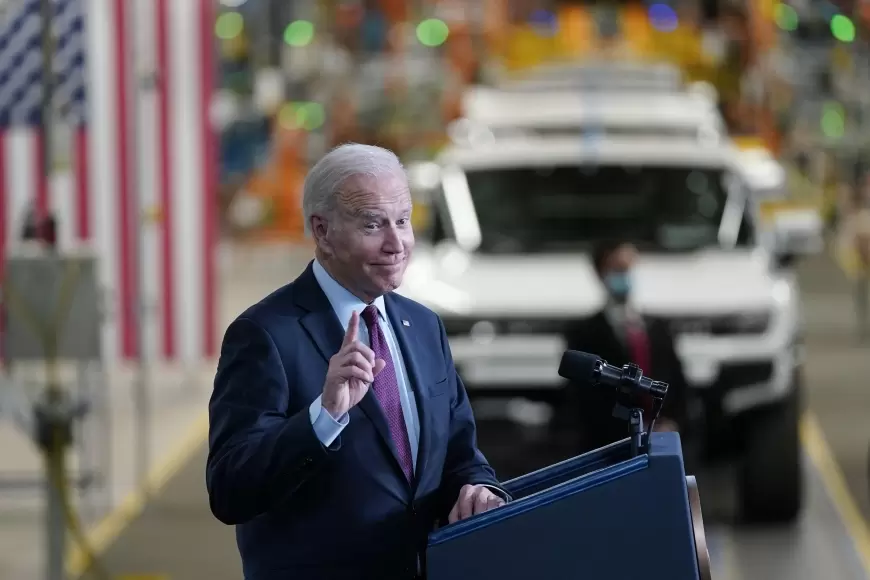Biden Administration's U-Turn on EVs: What's the New Roadmap?
Biden administration relaxes EV emission rules, granting automakers more time to adapt and sparking industry debate

The Biden administration is gearing up to relax restrictions on tailpipe emissions, aimed at encouraging the shift from gas-powered cars to electric vehicles (EVs). Sources familiar with the plan revealed that rather than pushing for an immediate surge in EV sales, the administration intends to provide car manufacturers with more time to adapt to the transition.
The forthcoming rule adjustment, expected to be announced by early spring, signifies a significant departure from previous strategies. Under the new approach, the pressure for a substantial increase in EV sales will be deferred until after 2030. This move comes amidst concerns raised by automakers regarding the feasibility of meeting ambitious targets within short timeframes.
Previously, Reuters had reported on the possibility of the White House enacting Environmental Protection Agency (EPA) regulations by March, which would mandate substantial reductions in tailpipe emissions. The proposed regulations aim to elevate the U.S. EV market share to 67% by 2032, a stark contrast to its current standing at less than 8% in 2023.
However, major automakers such as General Motors, Ford, and Stellantis, the European parent company of Ram and Jeep, have expressed reservations about the rapid transition. Analysis of sales data and regulatory feedback by Reuters suggests that meeting accelerated targets could pose profitability challenges for these companies, particularly with their truck-heavy U.S. fleets.
Both automakers and the Alliance for Automotive Innovation, their primary trade group, have called for a more gradual increase in EV sales. They argue that EV technology remains costly for many mainstream consumers in the United States, emphasizing the need for additional time to develop the necessary charging infrastructure.
The Biden administration's decision to extend the transition period reflects a balancing act between environmental goals and industry concerns. As the automotive landscape continues to evolve, stakeholders will closely monitor the implementation of these regulatory changes and their implications for the future of transportation.
Must Read: Donald Trump Supporters Face Criticism Over GoFundMe for $355M Fine












































